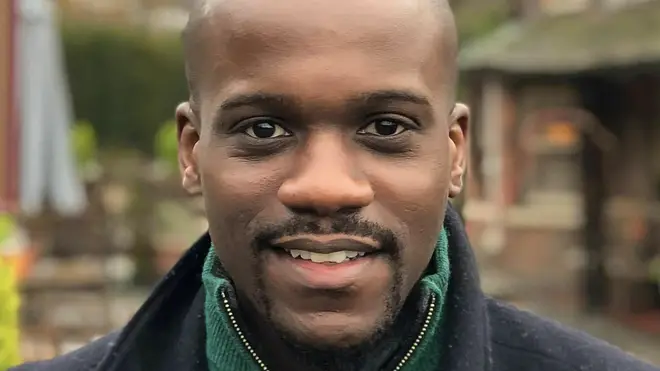
Ali Miraj 12pm - 3pm
1 April 2021, 09:26 | Updated: 1 April 2021, 09:34

Boris Johnson's most senior black adviser has quit his role amid a backlash over a report on racism in the UK - but Downing Street insists his departure has "absolutely nothing" to do with the report.
Samuel Kasumu has resigned as special adviser to the Prime Minister on civil society and communities but will stay on until May, it is reported.
It comes after a landmark report by the Commission on Race and Ethnic Disparities (Cred) faced heavy criticism over its findings, with claims that it is culturally deaf, out of step with public opinion, and "steeped in denial".
READ MORE: Race report accused of 'glorifying' slave trade by Labour MP
Downing Street sources insist his departure is "absolutely nothing to do with the report".
He notified the PM's chief of staff, Dan Rosenfield, of his decision to quit his job - which paid up to £75,000 - last week, Politico reports.
He has reportedly been unhappy in Government for some time, with a resignation letter drafted - but then retracted - in February.

Slavery claim totally 'discredits' race report, says caller
In the letter obtained by reporters, Mr Kasumu accused the Conservative Party of pursuing "a politics steeped in division" and suggested Equalities Minister Kemi Badenoch may have broken the ministerial code in her public spat with a journalist.
The Cred document found that Britain is no longer a country where the "system is deliberately rigged against ethnic minorities".
But its findings have been described as insulting and divisive, and the chairman of the review has been accused of putting a "positive spin on slavery and empire" when explaining its recommendation on teaching history in schools.
READ MORE: Headteacher backs down over 'racist' uniform rules and union jack at Pimlico Academy
Labour's Shadow Women and Equalities Secretary, Marsha de Cordova, accused the report of "glorifying" the slave trade.
She said: "This report was an opportunity to seriously engage with the reality of inequality and institutional racism in the UK."Instead we have a divisive polemic which cherry-picks statistics.
"The government must urgently explain how they came to publish content which glorifies the slave trade and immediately disassociate themselves with these remarks."
Labour has highlighted one passage in the 264-page report, which said: "There is a new story about the Caribbean experience which speaks to the slave period not only being about profit and suffering but how culturally African people transformed themselves into a re-modelled African/Britain."

Racial inequality report was a 'lost opportunity', Lord Woolley says
The report proposes a Making Of Modern Britain teaching resource to "tell the multiple, nuanced stories of the contributions made by different groups that have made this country the one it is today".
In commission chairman Tony Sewell's foreword to the report, he said the recommendation is the body's response to "negative calls for 'decolonising' the curriculum".
He wrote that the resource should look at the influence of the UK during its Empire period and how "Britishness influenced the Commonwealth" and how local communities influenced "modern Britain".
He added: "There is a new story about the Caribbean experience which speaks to the slave period not only being about profit and suffering but how culturally African people transformed themselves into a remodelled African/Britain."
Highlighting the passage on Twitter, shadow women and equalities secretary Marsha de Cordova said it was "one of the worst bits" of the report which was "putting a positive spin on slavery and empire".
Halima Begum, chief executive of race equality think tank the Runnymede Trust, said: "Comments about the slave trade being a Caribbean experience, as though it's some kind of holiday... this is how deafening it is, cultural deafness, it's completely out of kilter with where British society is, I believe."